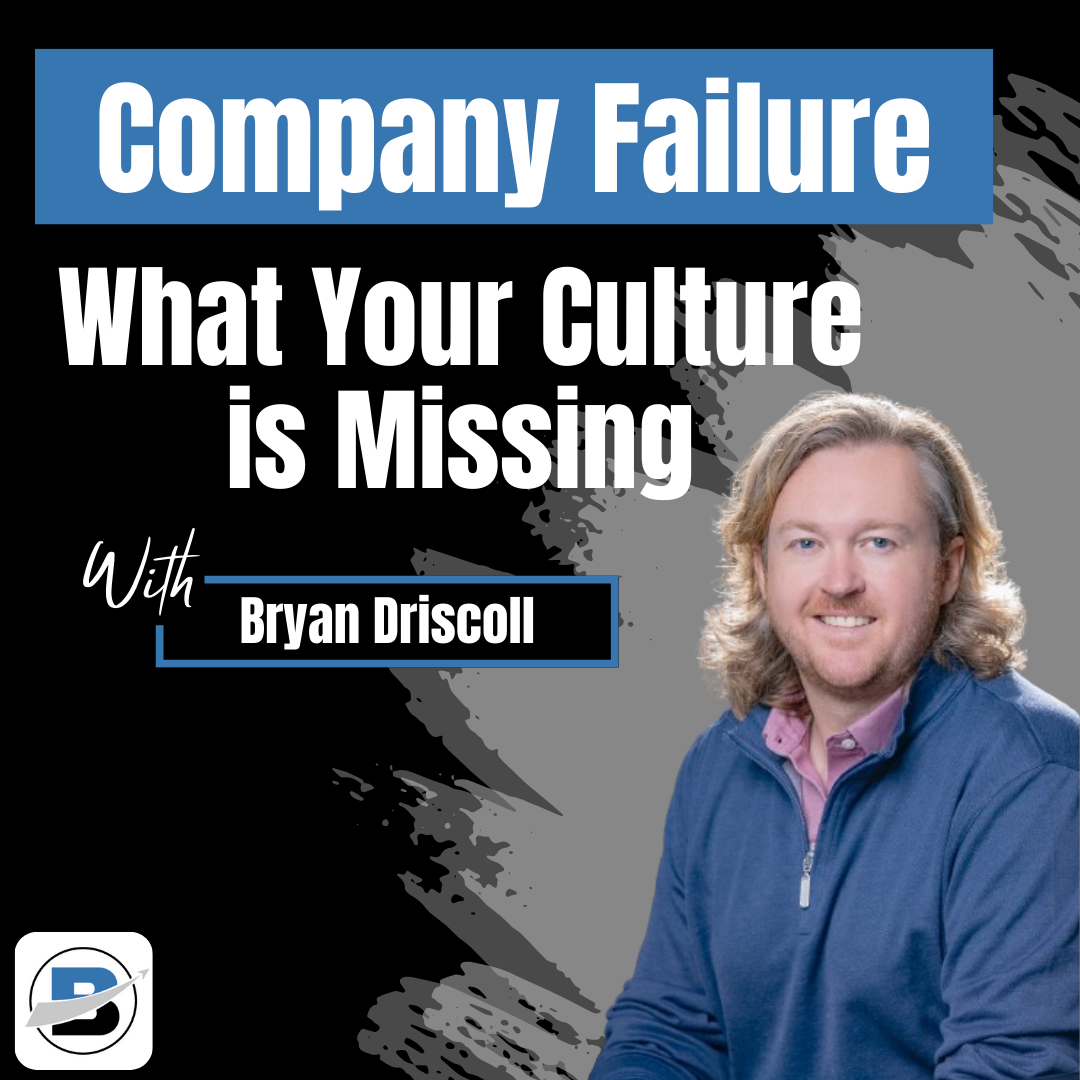Building a Strong HR Foundation for Your Startup: Insights from Bryan Driscoll
Introduction
As a young entrepreneur or small business owner, you’ve likely been focused on growing your business, attracting customers, and building a brand. But as your company grows, you’ll soon realize that managing your team and navigating the complexities of human resources (HR) can make or break your success. One common misconception among entrepreneurs is that HR is just an administrative task — something you can handle once your company is bigger. However, the truth is that setting a strong HR foundation from day one can save you time, money, and headaches down the road.
While on the Brothers Frontier Podcast, HR expert Bryan Driscoll shared valuable insights on how startups and small businesses can establish solid HR practices that foster growth, maintain legal compliance, and ensure a healthy work culture. In this post, we’ll dive into the importance of HR, how to avoid common mistakes, and why investing in your team’s well-being is key to building a thriving business. Let’s explore the essential steps you can take now to build an HR strategy that will support you as your business grows.
Why HR is Crucial for Startups
Human Resources is often viewed as a necessary evil, a compliance requirement that can feel like a distraction from the real work of running a business. However, when done right, HR is a critical foundation that can fuel your growth.
For young entrepreneurs, HR is about more than just hiring employees — it’s about laying the groundwork for a thriving company culture, establishing clear expectations, and ensuring you’re compliant with employment laws from day one. When you don’t have proper HR processes in place, you’re setting yourself up for risk. The last thing you want is to face legal trouble or employee dissatisfaction due to poor HR practices.
Bryan emphasizes that HR is not just about creating policies and dealing with legal requirements; it’s also about building systems that help you manage and motivate your team effectively. As a business owner, if you can proactively address HR issues and foster a positive work culture, your employees will feel supported, which leads to better retention and performance.
The Legal Side of HR: Why Compliance Matters from Day One
When you're running a small business, it’s easy to overlook the legal side of HR. Many entrepreneurs think they don’t need HR policies until they reach a certain headcount or revenue level. However, this can be a costly mistake.
Bryan Driscoll advises startups to be proactive about HR compliance, starting as soon as you hire your first employee. There are legal requirements that apply as soon as you bring people on board — things like ensuring non-discrimination in hiring, setting up proper payroll systems, and providing employee benefits where required. Waiting until you hit a specific employee threshold could leave you exposed to fines or lawsuits.
One of the best ways to avoid legal trouble is by creating essential HR policies early. These include:
Employee Handbook: A clear set of guidelines that outline workplace expectations, company culture, and legal rights.
Remote Work Policies: As remote and hybrid work become the norm, having a solid remote work policy is essential to managing your workforce effectively.
Equal Employment Opportunity (EEO) Policy: Ensures your hiring practices are non-discriminatory and legally compliant.
By putting these policies in place early, you’ll not only protect your business but also set a strong foundation for your team as they grow with you.
Navigating Generational Differences in the Workplace
One challenge many businesses face is managing a cross-generational workforce. As businesses expand, they often employ people from different age groups, each with its unique approach to work. For example, Baby Boomers might prefer working in the office, while Millennials and Gen Z workers may gravitate toward hybrid or remote work environments. These generational differences can create tension if not managed well.
Bryan Driscoll points out that understanding and respecting generational differences is key to creating a harmonious work environment. While older generations might value face-to-face collaboration, younger generations often see work as just one part of their lives, with a greater emphasis on work-life balance. This disconnect can cause frustration, but it can also be an opportunity to bridge gaps and create a culture of mutual respect.
To manage these generational differences effectively, consider these strategies:
Create a hybrid environment: A flexible work model allows you to meet the needs of both older and younger employees.
Foster open communication: Encourage employees from all generations to share their preferences and discuss work arrangements respectfully.
Leverage strengths: Older employees can mentor younger workers, while younger employees can introduce fresh ideas and technological advancements.
By respecting the different work preferences of each generation, your business will be more agile and able to adapt to changing trends while keeping your team motivated and engaged.
Prioritizing Employee Well-Being: The Secret to a Thriving Company Culture
Today’s workforce isn’t just concerned with the paycheck — they want to feel valued and supported. This is why prioritizing employee well-being is crucial for business success. Mental health awareness, wellness programs, and support systems have become more important than ever in the wake of the pandemic. Employees who feel supported in their personal and mental health are more likely to stay with your company and perform at their best.
Bryan Driscoll emphasizes that the impact of well-being initiatives goes beyond just offering mental health benefits or hosting occasional wellness events. Instead, creating a culture that prioritizes mental health means embedding awareness and support into your company’s core values. Here are some tips to do just that:
Offer Mental Health Resources: Provide access to counseling services, stress management programs, and mental health days.
Encourage Work-Life Balance: Encourage employees to take breaks, disconnect from work after hours, and focus on their well-being.
Lead by Example: Show that leadership prioritizes well-being by taking care of their own mental health and being open about the challenges they face.
Incorporating well-being into your business culture shows employees that you care about their holistic success — not just their productivity. When employees feel supported, they’re more engaged and loyal to the company.
How to Build an Plan That Scales With Your Startup
As your business grows, so will your HR needs. What works when you have five employees won’t necessarily scale as you hit the 25 or 50-employee mark. This is why it’s important to build an HR plan that grows with your business.
Bryan Driscoll advises young entrepreneurs to be forward-thinking when it comes to HR. The earlier you start implementing scalable HR processes, the easier it will be to transition as you grow. Here are some practical steps to take:
Start with the basics: At the beginning, focus on building essential HR policies like handbooks, job descriptions, and payroll systems.
Track employee milestones: As your company reaches certain headcounts (e.g., 25 or 50 employees), certain laws and regulations will come into play. Be prepared to comply with these as your business expands.
Outsource or hire HR support: In the early stages, it might make sense to work with an HR consultant or hire a part-time HR manager to help manage the growing workload.
By being proactive and establishing a flexible HR plan, your business will be well-prepared for the challenges of scaling while maintaining a positive and compliant work environment.
Building a Positive Company Culture Through Effective HR Practices
A strong company culture is one of the most valuable assets your business can have. It sets the tone for how employees interact, collaborate, and perform. HR plays a key role in shaping that culture by developing policies and practices that create a supportive, inclusive, and high-performing environment.
Here’s how HR can contribute to building a positive company culture:
Foster open communication: Encourage transparency, feedback, and dialogue between employees and leadership.
Recognize achievements: Reward employees for their contributions and celebrate milestones as a team.
Support career development: Offer opportunities for growth, training, and mentorship.
By embedding these practices into your HR strategy, you can create a culture that attracts top talent and keeps employees motivated and loyal.
Conclusion
Building a strong HR foundation from day one is crucial for the long-term success of any startup. By taking the time to establish compliant, scalable HR practices, prioritize employee well-being, and bridge generational differences, you’ll set your business up for growth, sustainability, and a positive company culture.
Bryan Driscoll’s insights serve as a valuable guide for entrepreneurs who want to take their HR practices seriously and avoid costly mistakes. So, as you continue building your startup, remember: HR isn’t a speed bump — it’s the oil that keeps your engine running smoothly.
By focusing on HR early, you’ll not only create a more efficient and compliant business but also foster an environment where your employees can thrive. And in turn, your business will thrive too.

